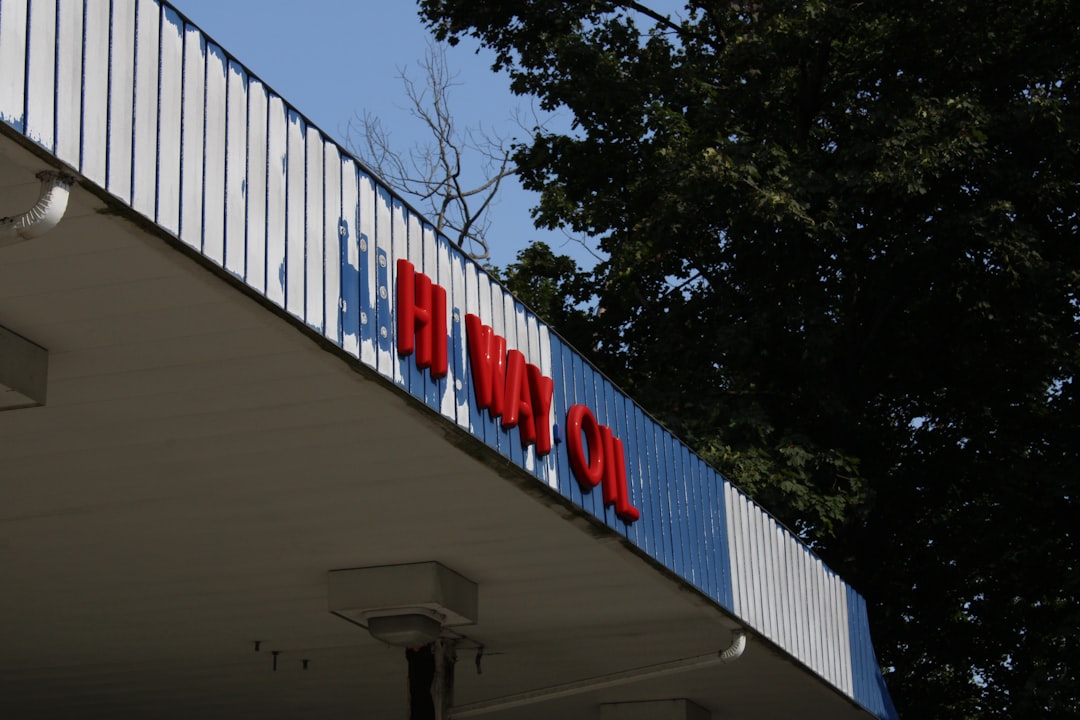In the late 20th century, a significant environmental crisis began to unfold, rooted in the actions of one of America’s largest chemical companies, DuPont. You may not have been aware that the company was involved in the production of perfluorooctanoic acid (PFOA), a chemical used in the manufacturing of Teflon. This substance, while useful in various applications, was also linked to severe health risks and environmental contamination.
The lawsuit that would eventually bring these issues to light began when residents of Parkersburg, West Virginia, noticed alarming health problems and environmental degradation in their community. You can imagine the frustration and fear that must have gripped these individuals as they sought answers about the source of their ailments. The situation escalated when a local farmer, Wilbur Tennant, discovered that his cattle were dying under mysterious circumstances.
Concerned for both his livelihood and the health of his family, Tennant reached out to attorney Rob Bilott, who had a background in environmental law. Bilott’s investigation into the matter revealed a troubling connection between DuPont’s operations and the contamination of local water sources. As you delve deeper into this case, you will see how it became a pivotal moment in the fight for environmental justice, setting the stage for a legal battle that would expose corporate malfeasance and its dire consequences.
Key Takeaways
- Rob Bilott played a crucial role in uncovering DuPont’s environmental and health violations.
- DuPont’s actions caused significant environmental damage and health risks to communities.
- The legal battle led by Bilott resulted in a landmark victory with wide-reaching implications.
- The documentary “The Devil We Know” helped raise public awareness about the case.
- The lawsuit emphasized the need for corporate accountability and stronger environmental protections.
Rob Bilott’s Role in Exposing DuPont’s Wrongdoings
Rob Bilott emerged as an unlikely hero in this saga, stepping away from his corporate law practice to take on a case that would challenge one of the most powerful corporations in America. You might find it remarkable that Bilott, who had spent years representing chemical companies, decided to represent Tennant and the residents of Parkersburg instead. His commitment to uncovering the truth about DuPont’s practices was fueled by a sense of moral obligation and a desire to protect public health.
As you explore Bilott’s journey, you will see how his legal expertise became instrumental in navigating the complexities of environmental law. Bilott’s investigation revealed a pattern of deception and negligence on DuPont’s part. He discovered that the company had been aware of the harmful effects of PFOA for decades but had chosen to conceal this information from both regulators and the public.
You may find it shocking that internal documents showed DuPont’s knowledge of the chemical’s toxicity while they continued to use it in their manufacturing processes. Bilott’s relentless pursuit of justice not only brought attention to DuPont’s wrongdoings but also highlighted the broader issue of corporate accountability in environmental matters.
The Environmental and Health Impact of DuPont’s Actions

The ramifications of DuPont’s actions were far-reaching, affecting both the environment and public health in profound ways. As you consider the impact on Parkersburg and surrounding areas, it becomes clear that PFOA contamination led to widespread pollution of water sources, soil, and air. Residents reported a range of health issues, including cancers, liver damage, and developmental problems in children.
The emotional toll on families grappling with these illnesses cannot be overstated; you can imagine the heartbreak of parents watching their children suffer from conditions linked to corporate negligence. Moreover, the environmental degradation caused by PFOA extended beyond individual health concerns. The chemical accumulated in the ecosystem, affecting wildlife and disrupting local habitats.
You might reflect on how this contamination not only harmed human life but also threatened biodiversity and ecological balance. The long-term consequences of such pollution are still being studied today, as scientists work to understand the full extent of PFOA’s impact on both human health and the environment.
The Legal Battle: Rob Bilott’s Fight Against DuPont
| Metric | Value | Description |
|---|---|---|
| Years of Legal Battle | 18 | Duration from initial lawsuit filing to major settlement |
| Settlement Amount | 670,000,000 | Amount awarded to plaintiffs in the class-action lawsuit |
| Number of Plaintiffs | 3,500+ | Individuals affected by PFOA contamination represented in the lawsuit |
| Contaminant | PFOA (C8) | Chemical compound at the center of the legal case |
| Year Lawsuit Filed | 1999 | Year Rob Bilott initiated the legal action against DuPont |
| Year Settlement Reached | 2017 | Year the major settlement was finalized |
| Health Effects Documented | 6 | Number of diseases linked to PFOA exposure in the settlement |
The legal battle that ensued was nothing short of monumental. Bilott faced numerous challenges as he sought to hold DuPont accountable for its actions. You may find it inspiring how he navigated a complex legal landscape filled with obstacles, including corporate resistance and attempts to discredit his findings.
Bilott’s determination was unwavering; he meticulously gathered evidence, conducted scientific studies, and built a compelling case against DuPont. As you follow Bilott’s journey through the courts, you will see how he not only fought for his clients but also for broader public interest. His case against DuPont became a symbol of resistance against corporate power and a rallying cry for those advocating for environmental justice.
The legal proceedings were lengthy and arduous, but Bilott’s commitment to exposing the truth never wavered. You can appreciate how his efforts not only sought justice for Parkersburg residents but also aimed to set a precedent for future environmental litigation.
The Landmark Victory: Impact and Implications
In 2017, after years of legal battles, Rob Bilott achieved a landmark victory against DuPont. The settlement reached was significant not only for the financial compensation awarded to affected residents but also for its implications on corporate accountability. You might feel a sense of triumph as you learn about how this case set a precedent for holding corporations responsible for environmental harm.
The victory underscored the importance of transparency and ethical practices within industries that have far-reaching impacts on public health. The implications of this case extended beyond Parkersburg; it resonated across the nation and even internationally.
Rob Bilott’s Advocacy for Environmental Justice

Following his victory against DuPont, Rob Bilott became an outspoken advocate for environmental justice. You might admire how he used his platform to raise awareness about the dangers posed by toxic chemicals and the need for stronger regulations to protect communities from corporate negligence. Bilott’s advocacy work has focused on educating the public about their rights and encouraging individuals to speak out against environmental injustices they may face.
Bilott has also collaborated with various organizations dedicated to environmental protection and public health advocacy. You can see how his efforts have helped mobilize communities across the country to demand accountability from corporations that threaten their well-being. His commitment to fighting for those who have been harmed by toxic exposure exemplifies the role that legal professionals can play in advancing social justice.
The Documentary “The Devil We Know” and Its Impact
The story of Rob Bilott and his fight against DuPont was captured in the documentary “The Devil We Know,” which brought national attention to this critical issue. You may find it compelling how this film not only chronicled Bilott’s legal battle but also highlighted the broader implications of chemical pollution on public health and the environment. By sharing personal stories from affected residents alongside Bilott’s journey, the documentary humanized the struggle against corporate malfeasance.
The impact of “The Devil We Know” extended beyond entertainment; it sparked conversations about corporate accountability and environmental justice across various platforms. You might reflect on how documentaries like this can serve as powerful tools for advocacy, raising awareness about issues that often go unnoticed by mainstream media. The film encouraged viewers to consider their own relationship with consumer products and the potential risks associated with toxic chemicals.
Rob Bilott’s Continued Work in Environmental Litigation
Even after achieving a significant victory against DuPont, Rob Bilott did not rest on his laurels; instead, he continued his work in environmental litigation with renewed vigor. You may appreciate how he has taken on additional cases involving toxic exposure and has remained committed to advocating for those affected by corporate negligence. His dedication to this cause reflects a deep understanding of the ongoing challenges faced by communities grappling with pollution.
Bilott’s continued efforts have also involved collaborating with scientists and researchers to better understand the long-term effects of chemicals like PFOA on human health and ecosystems. You might find it inspiring how he has become a leading voice in pushing for legislative changes aimed at preventing future contamination incidents. His work serves as a reminder that the fight for environmental justice is ongoing and requires sustained effort from individuals committed to making a difference.
DuPont’s Response and Changes in Corporate Practices
In response to mounting pressure from lawsuits and public scrutiny, DuPont has made some changes in its corporate practices over the years. You may find it interesting that the company has taken steps to phase out certain harmful chemicals from its production processes and has implemented more stringent safety measures. However, critics argue that these changes are insufficient given the scale of harm caused by past practices.
DuPont’s response highlights an important aspect of corporate accountability: while some changes may be made in response to public outcry, true accountability requires more than just surface-level adjustments. You might consider how meaningful change involves a commitment to transparency, ethical practices, and proactive measures to prevent harm rather than merely reacting to crises as they arise.
The Importance of Corporate Accountability in Environmental Protection
The case against DuPont underscores a critical lesson about corporate accountability in environmental protection. You may recognize that when corporations prioritize profit over public safety, communities suffer devastating consequences. This lawsuit serves as a reminder that individuals have the power to hold corporations accountable through legal action and advocacy efforts.
As you reflect on this case, consider how it has influenced discussions around regulatory reforms aimed at protecting public health and the environment. The importance of transparency in corporate practices cannot be overstated; you might think about how informed consumers can drive change by demanding safer products and holding companies accountable for their actions.
Lessons Learned and Future Implications of the Lawsuit
The lawsuit against DuPont offers valuable lessons for future generations regarding environmental justice and corporate responsibility. You may feel empowered by understanding that individuals can make a difference when they stand up against powerful entities that threaten their health and well-being. This case illustrates the importance of community solidarity in advocating for change.
Looking ahead, you might ponder how this landmark case will influence future litigation involving toxic exposure and environmental harm. As awareness grows about the dangers posed by hazardous chemicals, there is potential for more individuals to seek justice through legal channels. The implications of this lawsuit extend beyond Parkersburg; they resonate across communities worldwide facing similar challenges related to corporate negligence and environmental degradation.
In conclusion, as you reflect on Rob Bilott’s journey and the broader implications of this landmark lawsuit against DuPont, consider how it has shaped conversations around corporate accountability, environmental protection, and social justice. The fight for a healthier planet continues, fueled by individuals like Bilott who refuse to back down in the face of injustice.
Rob Bilott’s landmark lawsuit against DuPont has shed light on the dangers of perfluoroalkyl and polyfluoroalkyl substances (PFAS) and their impact on public health. For those interested in exploring more about the science behind these chemicals and their effects, a related article can be found at Freaky Science. This resource delves into the complexities of chemical exposure and its implications, providing valuable insights into the ongoing discussions surrounding environmental safety and corporate responsibility.
WATCH THIS! The Forever Chemicals: How Your Nonstick Pan Gave You Cancer
FAQs
Who is Rob Bilott?
Rob Bilott is an American environmental attorney known for his legal battle against the chemical company DuPont. He gained national attention for his work exposing the contamination of drinking water by perfluorooctanoic acid (PFOA), also known as C8.
What was the DuPont lawsuit about?
The DuPont lawsuit involved allegations that the company knowingly contaminated drinking water with PFOA, a chemical used in the manufacture of Teflon and other products. The lawsuit claimed that DuPont failed to disclose the health risks associated with PFOA exposure, which led to serious health problems in affected communities.
When did the Rob Bilott DuPont lawsuit take place?
Rob Bilott began investigating DuPont’s use of PFOA in the late 1990s. The major class-action lawsuit was filed in 2001, and the case culminated in a significant settlement in 2017 after years of litigation and scientific studies.
What was the outcome of the lawsuit?
The lawsuit resulted in a $670 million settlement to compensate thousands of people affected by PFOA contamination. Additionally, the case led to increased regulatory scrutiny of PFOA and related chemicals, as well as greater public awareness of environmental pollution caused by industrial chemicals.
How did Rob Bilott discover the contamination?
Rob Bilott was initially contacted by a farmer whose cattle were dying mysteriously. His investigation revealed that DuPont had been dumping PFOA waste into local waterways, contaminating the environment and posing health risks to nearby residents.
What impact did the lawsuit have on environmental law?
The lawsuit set a precedent for holding corporations accountable for environmental pollution and chemical safety. It also contributed to changes in chemical regulation policies and inspired further research into the health effects of per- and polyfluoroalkyl substances (PFAS).
Is there a movie or book about Rob Bilott and the DuPont case?
Yes, the story of Rob Bilott and the DuPont lawsuit was depicted in the 2019 film “Dark Waters,” starring Mark Ruffalo as Bilott. Additionally, Bilott wrote a memoir titled “Exposure,” which details his legal battle and the environmental issues involved.
What chemicals were involved in the DuPont lawsuit?
The primary chemical involved was perfluorooctanoic acid (PFOA), also known as C8. PFOA is part of a larger group of chemicals called per- and polyfluoroalkyl substances (PFAS), which are persistent in the environment and have been linked to various health problems.
Are there ongoing concerns related to DuPont and PFOA?
Yes, concerns about PFOA and other PFAS chemicals continue due to their persistence in the environment and potential health risks. Regulatory agencies and communities are still addressing contamination issues, and ongoing research aims to better understand and mitigate the effects of these chemicals.
How can people learn more about the Rob Bilott DuPont lawsuit?
People can learn more by reading Rob Bilott’s memoir “Exposure,” watching the film “Dark Waters,” reviewing court documents and settlements related to the case, and exploring resources from environmental organizations focused on chemical safety and water contamination.
